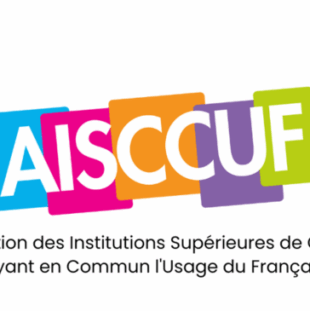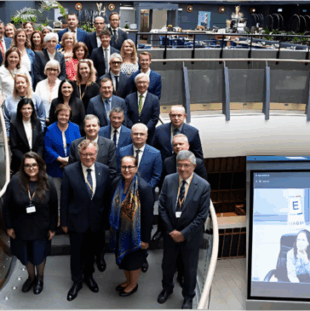Meeting the press in Antananarivo: Strengthening SAIs Pedagogy in Madagascar
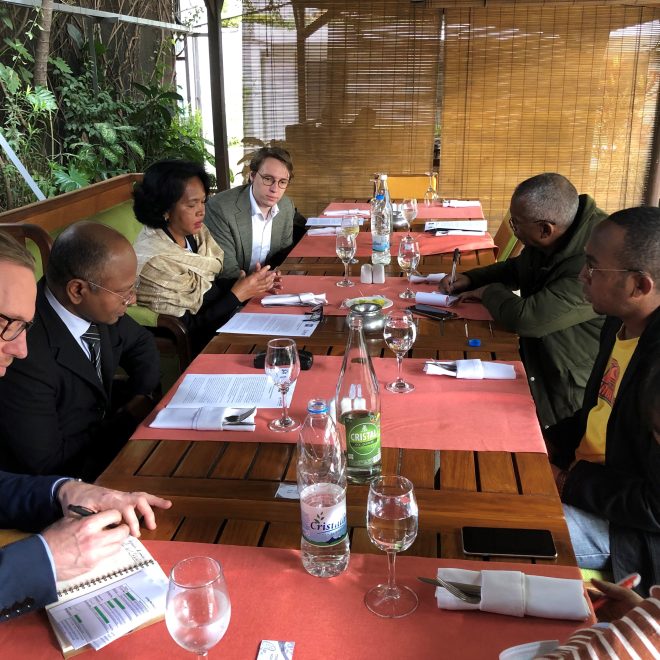
Author: Denis Gettliffe, Communication Expert for the French Cour des Comptes
While the publication of the annual public report is not a matter of normal course in many African SAIs, it is regular in Madagascar. However, relations with the press may be rare and may not very proactive. International collaboration can play a key role in increasing the capacity of SAIs to improve public relations.
The Court of Audit of Madagascar has adopted its 2020-2024 strategic plan, with three strategic results, the second of which states that “the SAI’s actions are credible, visible and accessible to the general public”. Since 2020, the SAI of Madagascar has been engaged in a capacity building project supported by the international community, designed by the INTOSAI Development Initiative (IDI), funded by USAID, and to which the SAIs of France, Morocco and Norway contribute.
This project, known as Tantana (“good governance” in Malagasy), is consistent with the Court of Audit’s strategic plan and aims to achieve seven objectives by 2025, including strengthening the external communication of the Court of Audit of Madagascar.
Although the Court regularly publishes annual public reports, report on the draft regulation law and even thematic reports), it remains little known and its role is poorly understood, both by public opinion and by the public authorities.
My mission, preceded by four video-conference meetings with our Malagasy colleagues, took place in mid-June 2022, after the publication and presentation to the press of the 2021 annual public report on 10 December 2021. Its main purpose was to prepare an informal meeting with the written press to be held at the end of the mission.
During a preparatory meeting with the French Embassy in Madagascar, I had learned that the Court of Auditors had, in February 2021, resisted pressure to dissuade it from publishing four audit reports on the management of funds from international donors to address the COVID pandemic. With the support of international technical and financial partners, the Court of Audit had succeeded in making the reports public.
On the strength of this success, which deserves to be noted, the Court of Audit could resolutely engage in a more proactive approach with the media. This could convince the public of the Court of Audit’s usefulness and the validity of its specific role, and strengthen the conditions of its independence, which is still fragile. In this respect, the President of the Court of Audit, Jean de Dieu Rakotondramihamina, aware that the conditions for the independence of the SAI are not yet fully met, favours the formula according to which “the Court has the vocation to be independent”.
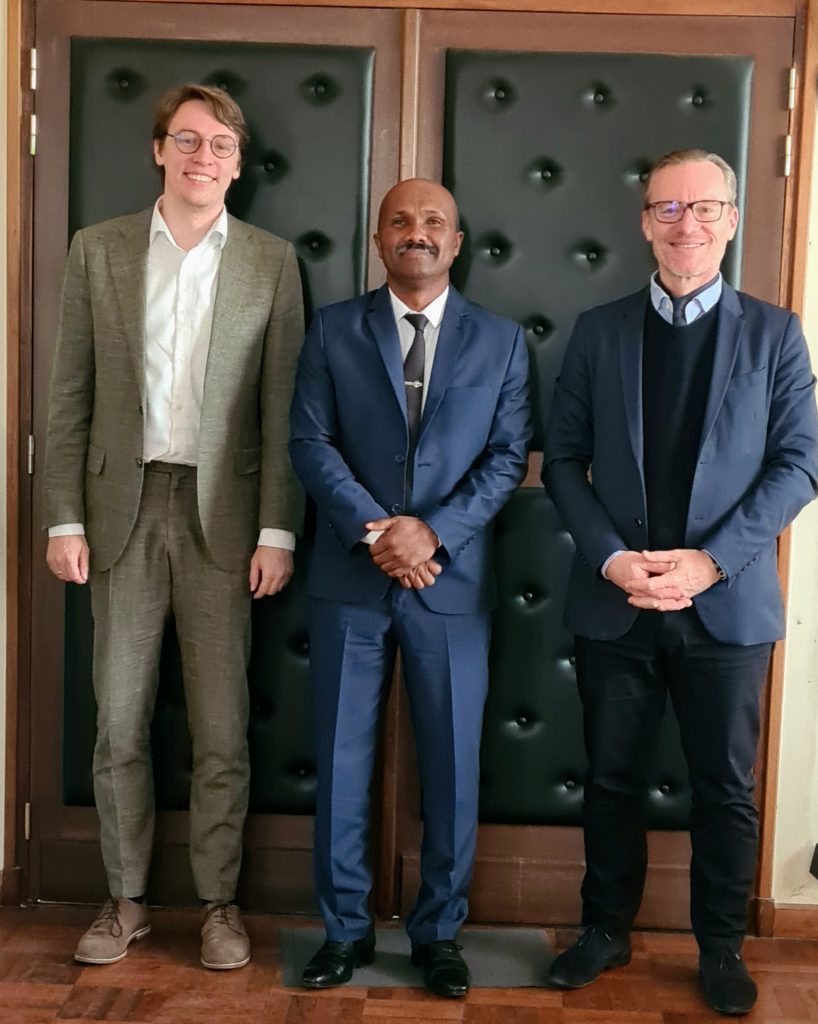
From the left: Nils Vösgen, IDI manager and long-term advisor in Antananarivo, Jean de Dieu Rakotondramihamina, Président of the Cour des comptes of Madagascar, and Denis Gettliffe, communication expert in the French Cour des comptes.
President Jean de Dieu Rakontondramihamina insists on the importance he attaches to the link between the Court of Audit and the citizens– for example, he finds that it is important that the choice of audits and investigations touch on the daily life of the Malagasy people, such as on the rice industry or cattle. Despite this, the President expressed some hesitation to authorise an informal meeting with the written press. Although the members of the Court are convinced of the need to develop their relations with the media, they were indeed apprehensive and feared that their message would be misunderstood, not properly transcribed or even misinterpreted.
In order to dispel these legitimate fears, a press kit was drafted and a preparatory work was carried out with a ‘hot mic’ exercise. During this exercise, I emphasized on the specific mission carried out by a SAI and on its implications for a spokesperson. When confronted to a journalist’s question, the interviewee may not feel compelled to answer every question, but has to explain why they don’t answer and redirect the response to one that is relevant to the SAI’s role and work. A good way to do so is to focus on the values and the procedure of a SAI. For instance, if asked about a topic that is breaking news or the controversy of the moment, an interviewee can explain that, as a spokesperson of a SAI, they are not entitled to express their personal opinion, that they must carry out the collective and deliberate position of the SAI about a specific topic that has been investigated according to its specific procedures. Therefore, they can only talk about the content of the SAI’s reports. By sticking to the SAI’s values, missions, specific tools and procedures, they can use what I call these “jokers” in any interaction with the media. By doing so, and by explaining how a SAI works, what are its values, its procedures and its purposes for public debate, an interviewee is, in the same time, avoiding a potential pitfall and educating about the institution.
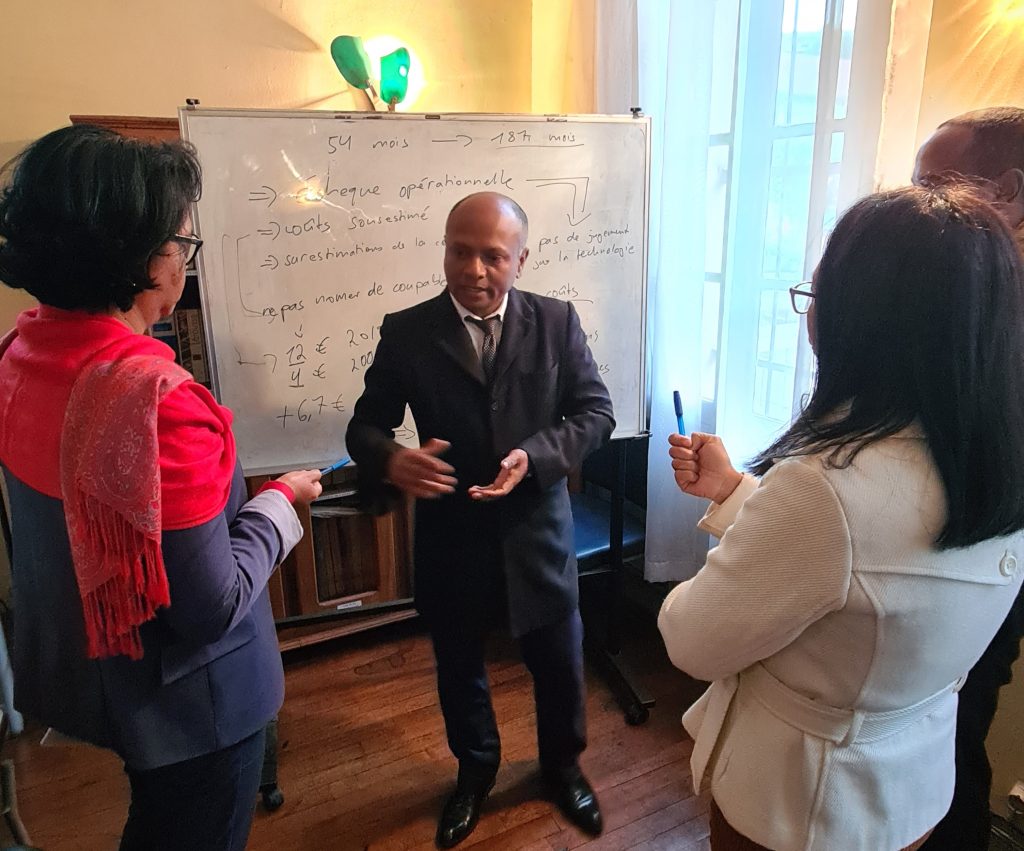
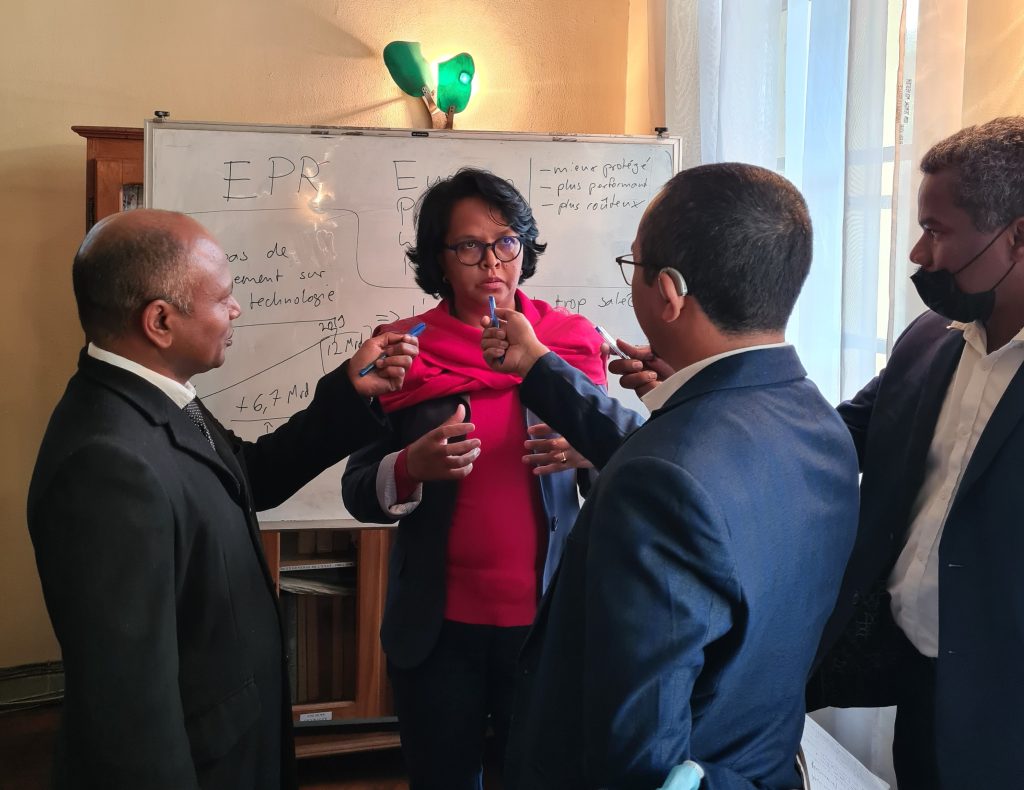
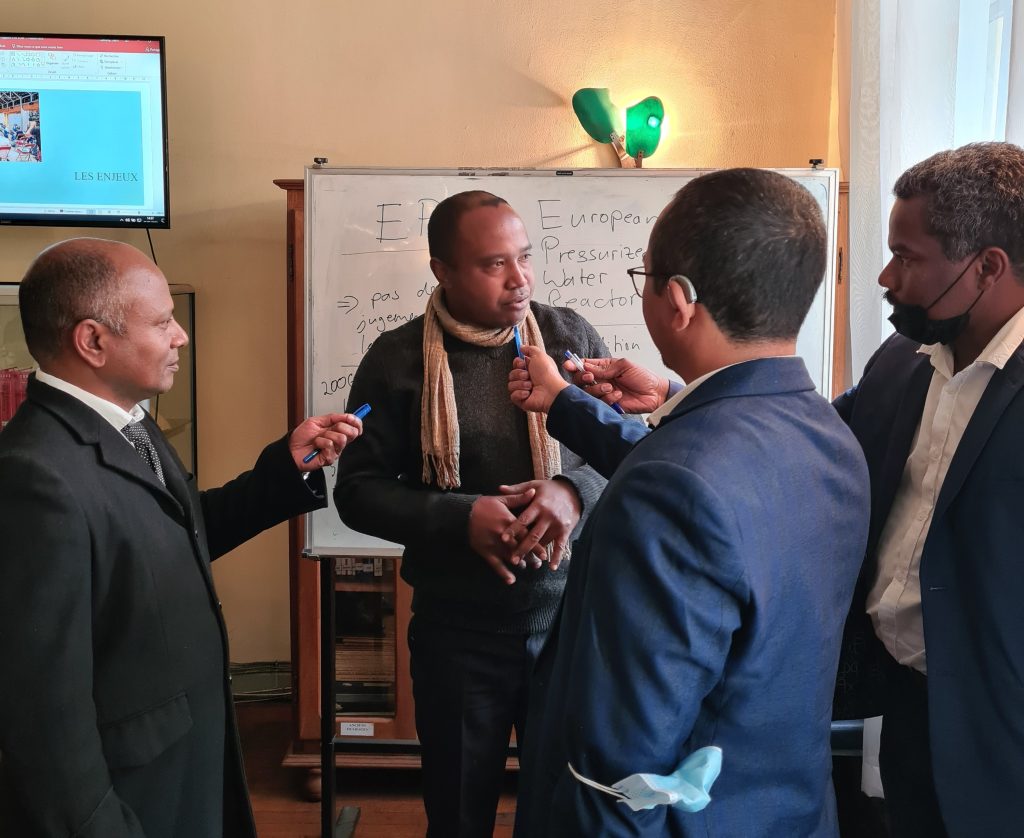
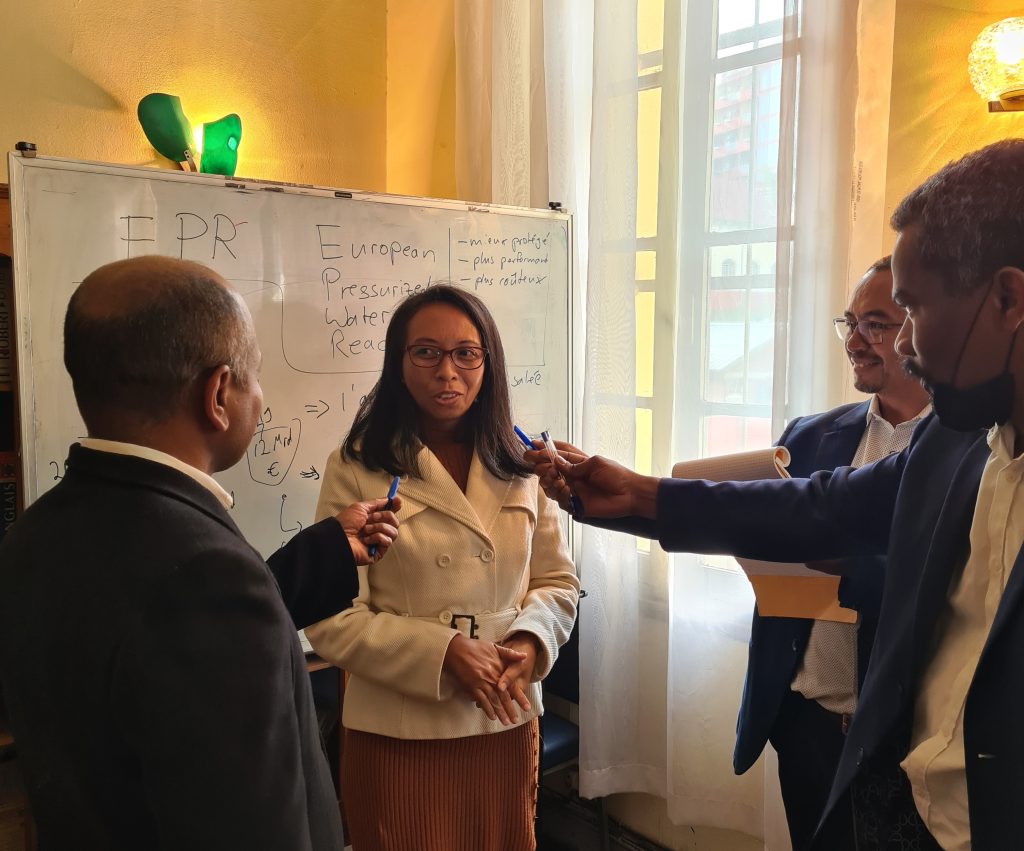
In the end, the meeting went very well and the journalists spontaneously expressed their interest in such a pedagogical approach to them.
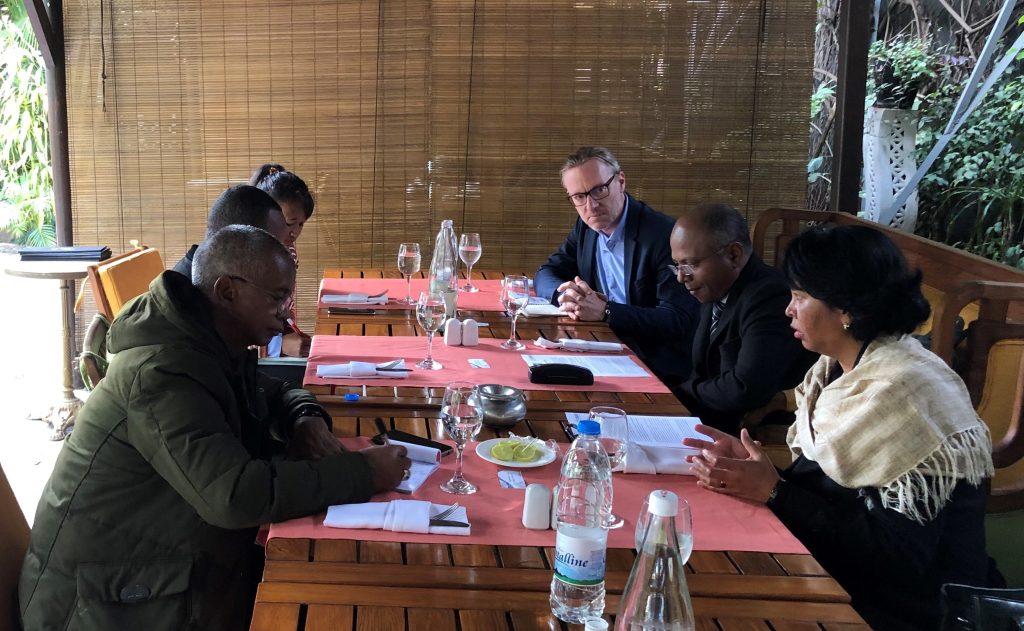
Patricia Rasamimanana, Chamber President in charge of drawing up the public report, and Ratsihosena Andrianandrasana, Chamber President, presented the contents of the press kit and answered a few questions from journalists representing the three main Malagasy print media. When they had to, they used their “jokers”, or redirection responses, in a very appropriate way.
The Court of Audit of Madagascar was very satisfied with the results obtained by this institutional communication exercise with an educational aim, as the newspapers widely took up and very well valued the content of the press kit.
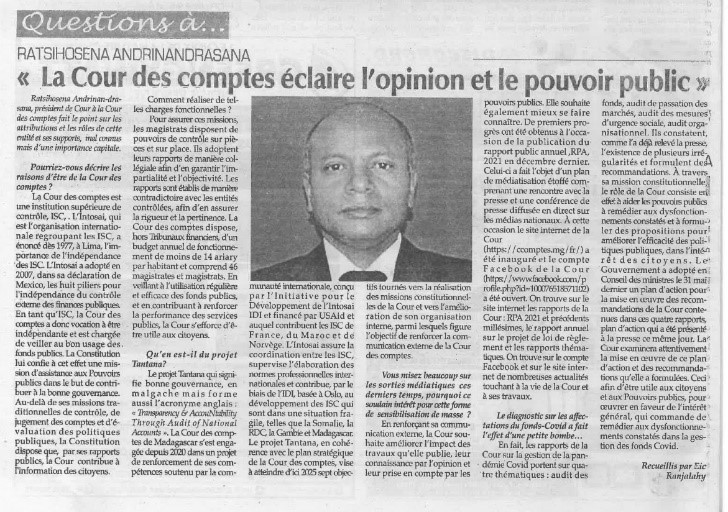
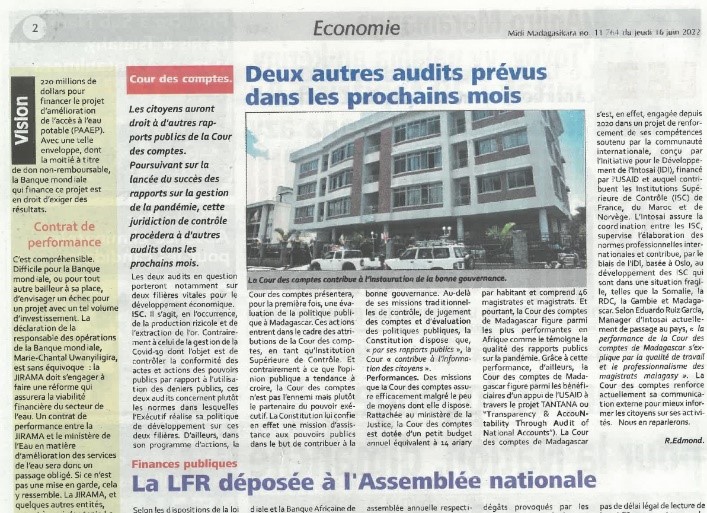
In addition to this meeting, a draft communication plan was also prepared and 20 recommendations were made on the Court’s communication organisation, its website and Facebook account, as well as on its relations with the press and other stakeholders Thanks to the IDI support and through international collaboration, the “Cour des Comptes” of Madagascar and its presidents dared to step out of their comfort zones to meet the press and strengthen the SAI’s pedagogy.



